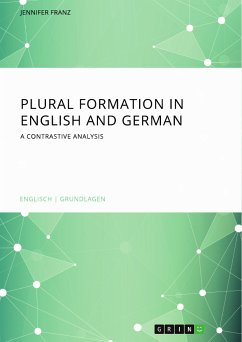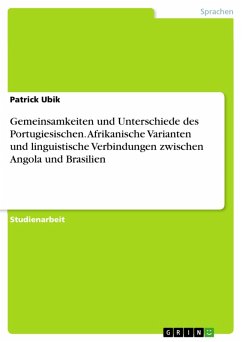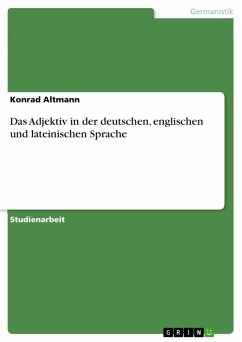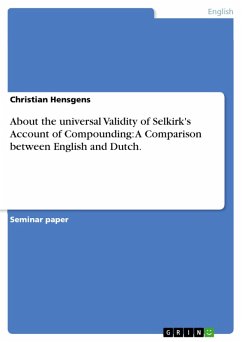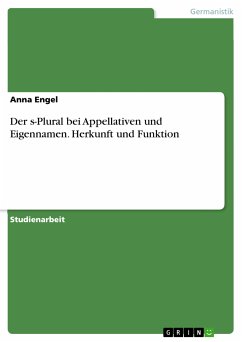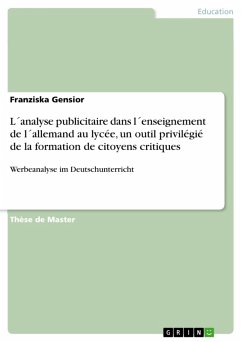Seminar paper from the year 2020 in the subject Learning materials - English, grade: 1,7, Johannes Gutenberg University Mainz, language: English, abstract: This paper will at first analyze the building of the plural in the two languages German and English, and afterwards discuss their similarities and differences. The paper asks for the differences and similarities of plural formation in German and English. Therefore, the author presents some previous literature to get an overview on the empirical state. Afterwards, the data and methodology will be discussed; this part is separated in the German and English plural formation. Both parts will analyze the regularities and irregularities of the formation process of their plural nouns. The contrastive synopsis will explain the similarities, as well as the differences of both languages. At last, the author will recap the term paper's results in a concise conclusion. Plural formation could be so easy, if it was as simple as in George Orwell's "Nineteen Eighty-Four". In this novel, the suffix -s forms the plural with every noun in the singular. Thus, man simply becomes *mans. Of course, the process of plural formation is much more complicated. The plural formation of nouns is a part of the inflectional morphology in general.
Dieser Download kann aus rechtlichen Gründen nur mit Rechnungsadresse in A, B, BG, CY, CZ, D, DK, EW, E, FIN, F, GR, HR, H, IRL, I, LT, L, LR, M, NL, PL, P, R, S, SLO, SK ausgeliefert werden.

